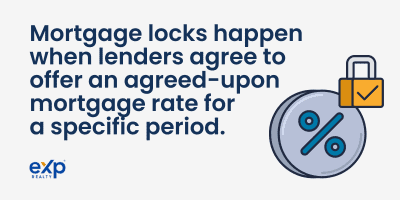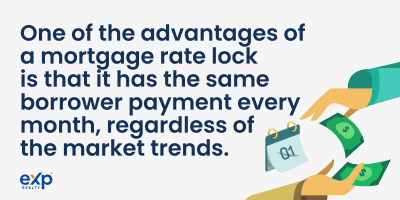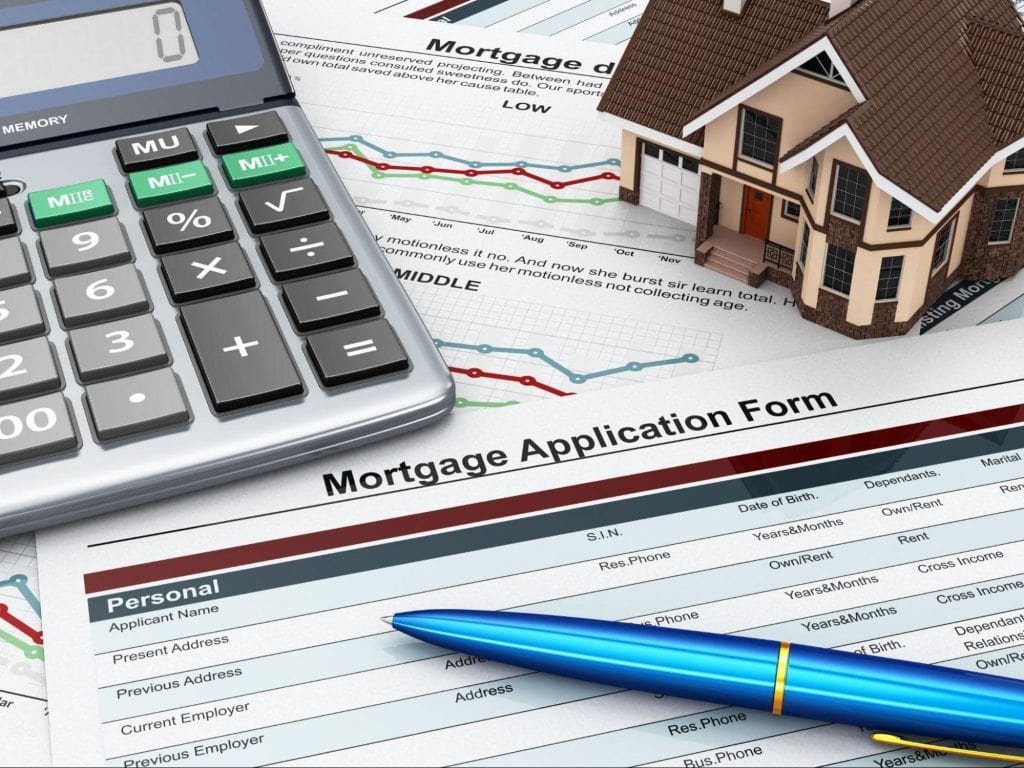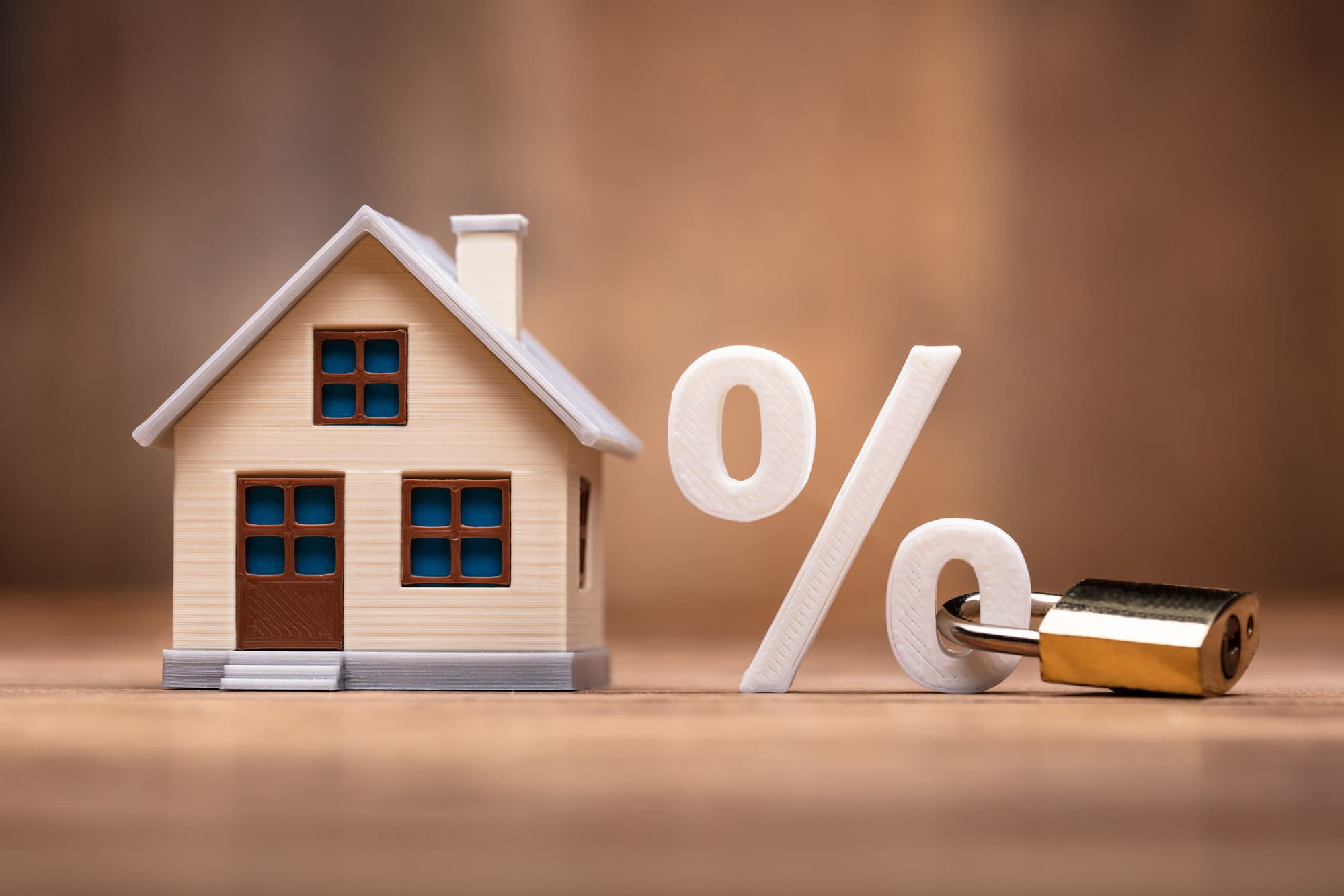Every homeowner will pay thousands of dollars in interest on their mortgage loan. Their monthly mortgage payment depends on the mortgage interest rates. The loan officer will consider a homebuyer’s credit score before the initial loan approval. Homebuyers must know about current interest rates and how they will affect their monthly payment.
You can visit eXprealty.com to learn everything you need to know about mortgage lending. An experienced agent will help you on your homebuying journey, and they can help you find the right lending institution for all your financial needs.
What Is a Mortgage Lock?
Who thought buying a house could be so complicated? Unfortunately, they do not teach mortgage 101 in school. Potential homebuyers can quickly become overwhelmed by the buying process. We will cover everything you should know about mortgages, and let’s break it down into simple terms.
Someone who wants to buy a house must apply and be approved for a home loan which is called a mortgage. A mortgage loan is one of the most significant loans that most people have in their lifetime. The mortgage covers the cost of their home and property. The mortgage will have several additional fees that the homebuyer must pay.
Mortgage rates are the interest rates your lender charges on a home loan. Conventional interest rates will increase the cost of your loan and the monthly payments. Homebuyers should shop around and research the best mortgage lenders. You can ask questions about interest rates and rate lock terms.

A feature of a mortgage loan is a rate lock. A lender will offer a rate lock to homebuyers to help them on their buying journey. A rate lock can sometimes motivate a buyer to make the leap into home ownership.
A locked-in interest rate means that the interest rate will stay the same. A rate lock appeals to many buyers because they know their monthly payment amount. Potential buyers may be concerned about affording monthly payments if there were fluctuations in the interest rate.
Mortgage locks happen when lenders agree to offer an agreed-upon mortgage rate for a specific period. The buying process usually determines the period for the initial rate lock, and the rate lock term is typically from the mortgage application to the loan closing.
Rate lock agreements protect buyers from sudden rate increases during the mortgage process, and the mortgage lender will charge a rate lock fee. Your current market interest rate should not change if you close within the specified time frame, usually a 30-day and 60-day rate lock.
A monthly mortgage payment consists of the principal plus the interest. The principal will remain the same, but the interest amount may fluctuate if the rates drop or increase.
There are a few common reasons that some buyers see a change in their interest rate.
- Buyers who change the loan type or the amount of their down payment will see a change.
- A property appraisal may come in higher or lower than anticipated.
- A buyer’s credit profile may have changed if they missed a payment or applied for another type of loan.
- The lender cannot document overtime income or any other additional income for the mortgage loan application.
Most financial institutions offer some flexibility for rate locks. Buyers should ask for additional details if they need clarification on fixed-rate loans. Knowing about your mortgage purchase is essential in case the interest rates suddenly drop. You will want to take advantage of every opportunity to save money on your mortgage.
As a potential homeowner, keeping your eye on rates is essential. Most lending institutions offer a float-down provision that allows borrowers to negotiate for lower interest rates with additional conditions. Borrowers may have to pay additional fees, but generally, lenders will work with their clients to help them find the best deal.
You must ensure that your favorable interest rate has a rate lock expiration date that gives you ample time to complete the closing process. It is possible to extend the lock period but you will be responsible for paying extension fees. You don’t want to find yourself with an expired rate lock and have yet to find a house to buy.
Advantages of a Mortgage Rate Lock

Far and away, the most significant advantage of a mortgage rate lock is that it has the same borrower payment every month, regardless of the market trends. Your price will always stay the same irrespective of fluctuating interest rates. Homeowners who are on a tight budget will appreciate the stability that a rate lock affords.
Another great advantage is financial peace of mind. If you find an affordable mortgage rate, you can invest in an extended rate lock program and rest easy so that you can afford your 30-year loan. People on a fixed income can still become homebuyers without worrying.
Daily mortgage rates can change several times a day. A rate lock guarantees you will not worry about daily interest rate movements. You will have the lowest price for the current mortgage rate.
Disadvantages of a Mortgage Rate Lock
The lender will charge additional fees for a rate lock included in the mortgage loan. The costs are worth it if you have a locked-in rate and the interest rates suddenly rise.
You may have to pay extra if the interest rates drop suddenly and you have invested in a rate lock structure. Some lenders will offer a refinancing option if the interest rate drops significantly, but the buyer must pay for this option.
Lenders typically recommend a rate lock structure with float-down capability. Borrowers can take advantage of any interest drops in the market, which could save thousands of dollars and extra time on their loan terms. Lenders will charge additional fees for this service as well.
Borrowers may experience another disadvantage if they do not lock in their interest rate long enough. Potential homebuyers should find their dream house before completing the residential mortgage loan application. Ensure that your rate lock period will cover the loan process.
Unfortunately, if your rate lock expires, you must pay the extended rate lock fee to have the original rate reinstated. These additional fees will increase your closing costs significantly. Borrowers should find a lender offering a 45-day rate lock for any mortgage.
For some, buying a house by the time limit results in stress. Buyers could rush into purchasing a home they need clarification on just because they know their rate lock is about to expire. Potential buyers should consider finding a house that they would like to buy before applying for a mortgage.
Factors To Consider When Deciding on a Mortgage Rate Lock

Shopping for the best lender is essential to lock in a mortgage rate. You should find a lending institution that offers the best loan products. They will check your credit history and provide loan estimates that you can consider.
Buyers should know the difference between adjustable-rate mortgages and fixed-rate mortgages. An adjustable-rate mortgage means your interest payment depends on the current interest rates, and a fixed-rate mortgage means the interest payment stays the same.
Studying current market conditions will allow you to determine if your lender is offering a fair interest rate. The current market conditions can also help you decide between an adjustable or fixed-rate mortgage.
You should determine if the rate lock term is long enough to carry through to closing and if the rate lock structure has a float-down policy. Borrowers should investigate if the lenders charge rate lock fees and the additional cost for rate lock extension fees.
If you have heard that mortgage rates are rising, it is an excellent time to take advantage of a fixed rate to minimize your mortgage interest rate risk. You never want to gamble on your mortgage payments, and a locked rate will ensure you have the exact monthly costs.
Rate lock policies protect owners from sudden increases in market rates. A fixed-rate mortgage gives homeowners peace of mind and security. You can be confident that your budget will be the same every month.
When considering a rate lock, homebuyers should consider any float-down option that comes with the rate lock. A float-down option allows homeowners to refinance if the interest rates drop significantly.
Key Takeaways
- Homebuyers should research the interest rates if they are considering a home purchase. They should know what lenders are generally offering to determine if they are getting a good deal.
- Shopping around for lenders who offer the best mortgage loans is crucial. Lending institutions are in the business of making money so that they will compete for your business.
- A rate lock is wise if you suspect interest rates are rising. A rate lock could save you thousands in costly interest payments.
- Buyers should pay close attention to the rate lock term their lender offers. Your period should be long enough to get you through to your closing. If not, you should investigate options for rate lock extensions and any fees associated with an extension.
- Pay close attention to any float-down provision that your rate lock offers. You want to be able to save money when there is a drop in interest rates. A float-down option allows you to refinance your mortgage and negotiate a better interest rate.
FAQs
Let’s look closer at some frequently asked questions about mortgage rate locks.
How do rate locks work?
A lender will offer a rate lock to potential buyers. They guarantee an interest rate on your requested loan for a specific period. The lender will charge rate lock fees which are generally included in the actual loan. The lock period usually begins with the loan approval and continues to the loan closing.
Is locking in a rate a good idea?
Locking in a rate suits buyers who want to avoid fluctuating interest rates. A rate lock will give home buyers peace of mind knowing they can pay their monthly mortgage payments.
What does a 30-day lock mean?
A 30-day lock means that the lender will guarantee the interest rate for 30 days after the approval of the loan. The buyer must pay for a rate lock extension if more time is needed.
Can I walk away from a rate lock?
You can’t unlock your mortgage rate after locking it, and you can ask your lender about a float-down provision. You must pay an extra fee, but the lender will work with you to take advantage of lower rates.
Another option is to cancel your loan application and use a different lender offering a lower interest rate. You will have to start the entire process again.
What happens if you break a rate lock?
You will have to pay significant penalties when you break a rate lock. Generally, the homeowner will pay up to 3 months of interest payments and additional fees. Homeowners should calculate the cost of their penalties before deciding to break a rate lock.
What’s the longest you can lock a rate?
Some lenders will offer a rate lock for up to 120 days. After this period, they will generally charge rate lock extension fees. The most common rate lock terms are 30 or 60 days.
What is the downside to locking your mortgage rate?
Homebuyers can lose the chance at a lower interest rate if they drop during their fixed rate. They will be responsible for paying rate lock fees, and the rate lock could expire, which means there will be additional fees.
Can you negotiate a rate lock?
Some lenders will negotiate the rate until closing, while others will have limits. You can find a better deal with another lender. Homebuyers should talk to several lenders before deciding on the best deal.
Final Thoughts
Affordability issues can weigh on a homebuyer’s mind. You can find great advice at eXprealty.com. Potential homebuyers can search for properties or sign up to get alerts for new properties. We can help you find what you are looking for. The right real estate agent will walk you through the home buying process. Contact an agent today to get started.





